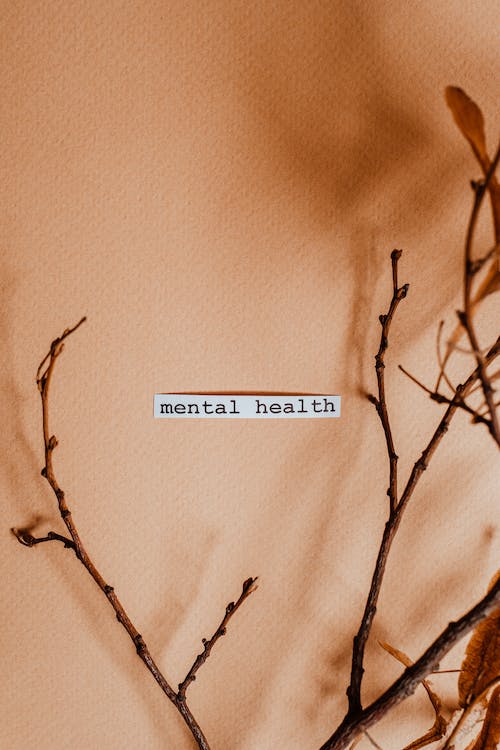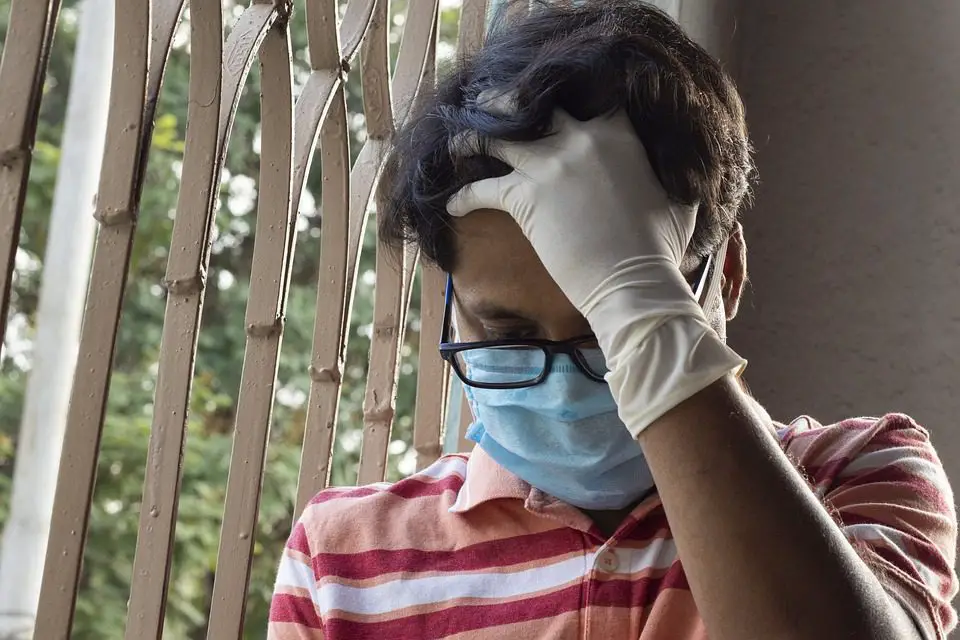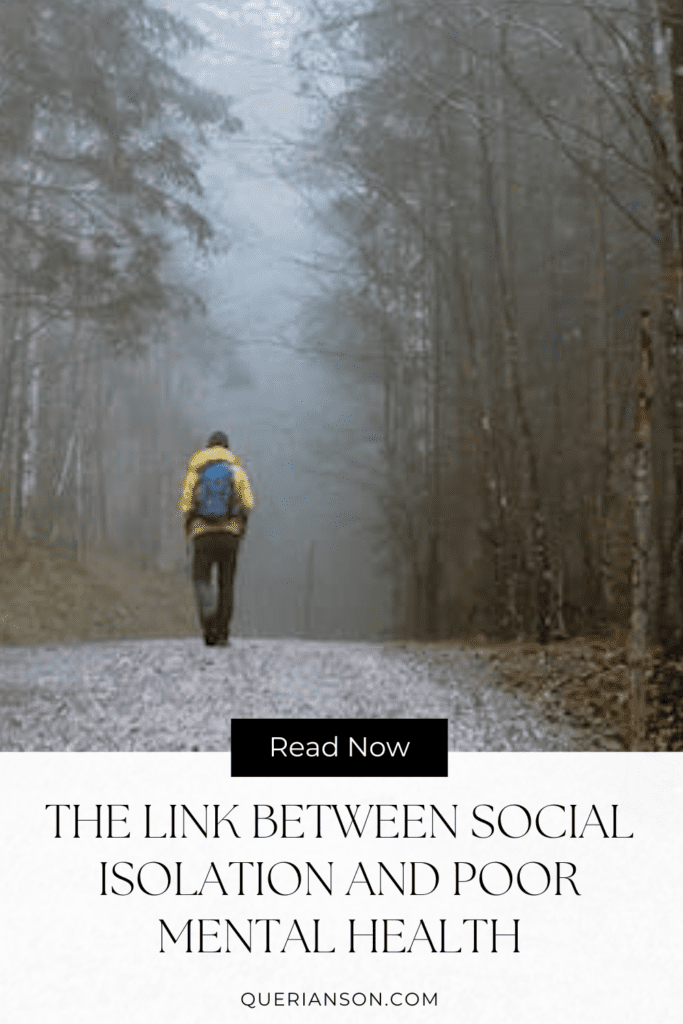Social isolation and poor mental health are big issues worldwide, and both of these problems are increasingly common in developed countries. What’s more, they’re strongly connected.
Studies show that social isolation can worsen poor mental health and increase the risk of mental health disorders. In turn, poor mental health can worsen social isolation and even lead to substance use.
In this post, we’ll look at the connection between social isolation and poor mental health and ways to build social connections and improve mental health.
Table of Contents
What do these terms mean, exactly?
To start with, here we can explain what each of these terms means. That’s because each of these can have very different meanings, depending on who you ask.
Read on the blog: Mindset is everything: a guide to success in your life
Social isolation means not having meaningful connections with others. It refers to issues such as being distant from friends and family, not going out and socializing, etc.
Poor mental health simply means suffering from any kind of mental health disorder. These can be anxiety, depression, and an array of other disorders.
Finally, both of these – and especially in combination – can lead to substance use. That’s when a person uses illicit drugs or abuses prescription and other legal drugs.

What’s the connection between social isolation and poor mental health with substance use?
With that in mind, it’s crucial to note a final term. That’s “dual diagnosis,”; the condition where an individual simultaneously has a substance use disorder and a mental health disorder.
That is the best example of how social isolation and poor mental health are linked to substance use disorders. Dual-diagnosis cases are increasingly common.
In truth, more than half of people with substance use disorders have at least one co-occurring mental health disorder.
More on the blog: Feeling defeated: Recovery tips and how to handle it
Moreover, research suggests that people with substance abuse problems are more likely to experience social isolation and poor mental health.
For this reason, addressing social isolation by leaning on community support during treatment is an effective rehab practice.
Individuals can build healthy relationships and access resources that promote recovery by providing a supportive environment during rehab.
That can help individuals break free from the cycle of addiction and work towards a healthier, happier life.
Social isolation is becoming very common
Of course, treating substance use is vital. It’s not the starting point, but the final one – for when social isolation and poor mental health lead to substance use. So, how common is social isolation becoming? According to many studies, very common.
Studies show that over 10% of adults report social isolation, with a higher prevalence in disadvantaged socioeconomic groups. That’s massive, and there are many reasons for it.
Social isolation is driven by technology, urbanization, and an aging population. Social media and technology use has also led to virtual connections that replace real-life interactions.
Urbanization specifically has led to more people living alone, reducing opportunities for social interaction. Therefore, many older adults are at higher risk for social isolation.

Increasing rates of poor mental health in the developed world
Alongside more social isolation, poor mental health is also an increasingly common societal problem. That is, of course, related to the connection between the two, in no small part.
Poor mental health can affect an individual’s thoughts, emotions, and behavior, and it is becoming increasingly common in the developed world.
To put this in numbers, consider the following:
● The CDC says that in 2021, 42% of students experienced persistent sadness or hopelessness, and almost one-third had poor mental health.
● Similarly, NIMH reports that 5.5% of adults in the United States had a serious mental illness, with a higher prevalence among females.
● The APA also cites a national survey, which found that more than 60% of college students met the criteria for at least one mental health problem during the 2020-2021 school year.
That is, of course, tragic on a personal level. Dealing with social isolation and poor mental health can have a very negative impact on everyday life.
Mental health problems can also have consequences beyond the individual. Such as decreased productivity and increased healthcare costs.
The link between social isolation and poor mental health
So, how are the two connected? Down to their basics, it seems. One can lead to the other, and the two can damage the individual beyond measure.
Social isolation can lead to loneliness, depression, anxiety, and other mental health problems. All such problems can lead to further social isolation, and the two can often lead to substance use.
Here are some factors that contribute to social isolation and poor mental health:
- Living alone
- Lack of social support
- Physical illness or disability
- Low income
- Discrimination
In addition, NAMI finds that social isolation can increase the risk of premature death by up to 50% and is associated with a higher risk of developing mental health conditions such as depression, anxiety, and schizophrenia.
The global pandemic has also made things worse than ever, NAMI continues. It reports that many people who have never had mental health disorders developed symptoms because of social isolation.

How can we address social isolation to improve mental health?
With all that said, what can we do about social isolation? It’s a simpler condition to address, so that’s where we should focus first.
Building social connections can be challenging, especially if you’re not very social. But you still have many options, like:
- Join clubs or groups that align with your interests: This can be a great way to meet people who share your hobbies and passions.
- Volunteer: Volunteering can provide a sense of purpose and a chance to meet new people.
- Attend community events: Check your local community calendar for festivals, concerts, and fairs.
- Connect with others online: Social media platforms, online forums, and other virtual communities can be a way to connect with others who share similar interests.
- Contact friends and family: Call, text, or arrange a visit with loved ones.
- Take up a new hobby or activity: Join a fitness class, learn a new skill, or take a course that interests you.
- Seek professional help: A mental health professional can support and guide you on managing social isolation and improving mental health.
Remember, it’s important to take the first step toward addressing social isolation and to keep an open mind about new opportunities to connect with others.

Conclusion

So to summarize, the link between social isolation and poor mental health is complex and concerning. Social isolation, poor mental health, and substance use are intertwined and can lead individuals down a destructive spiral.
Therefore, individuals and communities must take action to address social isolation to help prevent mental health crises.
Building and maintaining social connections, seeking professional help when needed, and advocating for policies that support mental health and social connectedness can all make a difference.
It is time for us to recognize the impact of social isolation on mental health and take steps to address it to promote better health and well-being for all. Let’s work together to break the cycle of social isolation and mental health challenges.

47 comments
This was a wonderfully written article about mental health and why social isolation deeply influences it. I appreciate the Stats that interests me a lot when it comes to learning more.
Thank you so much! I appreciate you taking the time to read and comment!
I think the pandemic really created new challenges with those experiencing social isolation. You offer some practical tips to help with the problem as well as aid in mental health.
Right? it indeed did. Thank you for reading and commenting!
This is seriously a great article, one that would benefit a lot of people. Social isolation and mental health are connected for sure. And in this world of increasing social isolation via technology, its making things worse indeed. Well done on bringing attention to this important issue!! As someone who has suffered with mental health issues I know firsthand how detrimental social isolation is on you mental health!
I appreciate you reading this post and commenting your thoughts about it.
I recently read an article about this from the Surgeon General on how debilitating loneliness can be. After reading this post how isolation impacts mental health I am feeling inspired to reach out to a few people I know who may be suffering.
That’s amazing! I’m glad it helped. Thank you for your doing that.
Excellent post, Fransic. The connection between social isolation and poor mental health has become so common these days. Humans have thrived over the centuries on connection and communication. We should try to be patiently supportive of each other online as well as offline.
I’m glad you found it excellent. Thank you for reading!
This was a very interesting read. I hadn’t thought about how impactful social isolation can be. It’s sad that in our world of so much technology and “connection”, we are even less connected than ever.
Thank you so much! I appreciate you reading and commenting!
It sounds like a cycle that you get trapped in. I do think that social media has a lot to answer for in regard to mental health.
Corinne x
Thank you for reading and commenting your feedback about this.
I really struggled with social isolation when I moved to a foreign country and I can confirm it really messed my mental health. Thank you for shading light on this very important topic.
Ah, I see. I’m sorry you had struggled. Thank you for reading!
That feeling of hopelessness easily creeps in when someone is isolated. Your tips in coping can really be helpful and if I must say that having more faith in God needs to be nurtured as well.
Thank you for reading and commenting your feedback!
I love your tips for building social connections, whilst we live away from family and have a few close friends we are always in contact with them…great article
I’m glad you find it a great article. Thank you for reading and commenting!
That’s true, if you don’t solve the issue, it’s useless to get those people to get rid of their addictions to substances, because they will always go back to it
Yeah, it’s very important. Thank you for reading and commenting!
As a former public health nurse, I can testify to the strong relationship between mental health and addiction. Great post Fransic!
Thank you so much! That’s awesome to know about you being a public health nurse.
Your post about the impact of social isolation on mental health was spot on. It’s important to recognize the negative effects of isolation and find ways to connect with others to combat it.
Thank you so much! I appreciate you reading and commenting!
Your article on social isolation and poor mental health is a powerful and timely piece. You tackled a difficult topic with sensitivity and nuance, and your writing conveys a deep understanding of the issues at hand. I appreciate your willingness to shed light on this important topic and your ability to communicate your thoughts with clarity and empathy.
Thank you for reading and sharing your thought.
The pandemic really accentuated these feelings in so many people. I like spending lots of time alone but there’s definitely a line.
Yeah, it was tough time. Thank you for reading and sharing your thoughts.
Social Isloation is a real thing. I think the statistics is far higher than what you presented. As a Jamaican, I never knew what feelings of loneliness and islolation feels like until I left I knew home to moved to the US. In Jamaica, hanging out with friends is a daily affair. Everyone knows everyone and looks out for everyone; even those that are bed bounds. I have a soft spot for the elderly who lives by themselves with no friends or family. I can only imagine how isolated and lonely they feel. Thanks for shedding light on these mental health issues.
Yeah, it is a real thing. Thank you for reading and commenting!
Amazing breakdown! And I loved the list of ideas to build social connections. I think that insincere activities or surface-level socialization can be damaging as well, so it’s nice to have suggestions of activities that would help cultivate deeper connections.
Thank you so much! I appreciate you reading and commenting!
This is so interesting and such an important topic! I really feel like social isolation isn’t good for many people – were designed to be social!
Thank you for reading and sharing your feedback about this.
Technology is a wonderful thing that puts the world at our fingertips, but it also gives us the illusion that we’re all “connected”.
A text is fast and convenient, but it can never replace a phone call or meeting in person.
The author of the book “The Blue Zones” found that human interaction, as in meeting with friends and talking face to face to people, was as important as a healthy diet and exercise for living longer.
Yeah, and nowadays technology is becoming more involved in our lives.
Oohhh yes, the correlation between these two items is so clear. On my end, I feel so much better when I am laughing and chatting with people that I am close with. We all need to be socially entangled with other people.
Thank you for reading and sharing your thoughts.
It’s hard for me as someone who loves being alone to find a balance, especially being an entrepreneur who can become a workaholic. It is important to remember that we are not alone in this. There are many people who are struggling with social isolation, and there are resources available to help us. If you are feeling isolated, please reach out for help. There is no shame in asking for help, and it could make a big difference in your life. (Like the TV commercial where the guy is lifting too-heavy weights, and won’t let his spotter help him because he doesn’t want to seem weak.)
Yeah, we must reach for help. Thank you for reading and sharing this with us.
This is so true. When we isolate we can fall into dark mental places. However, being alone is essential as well. It is key to find the right balance and be aware of the signs of the mental struggles.
Yeah, thank you for reading and sharing your thoughts!
Great post, very helpful.
I do feel this is a very real issue. I have a friend who lives alone and has hardly any contact with the outside world. It definitely shows in how she carries herself. I know she suffers from mental health issues quite often too. I’ve tried to get her more involved in community and church activities, but she never wants to leave her home anymore.
Thank you for reading and sharing your thoughts.